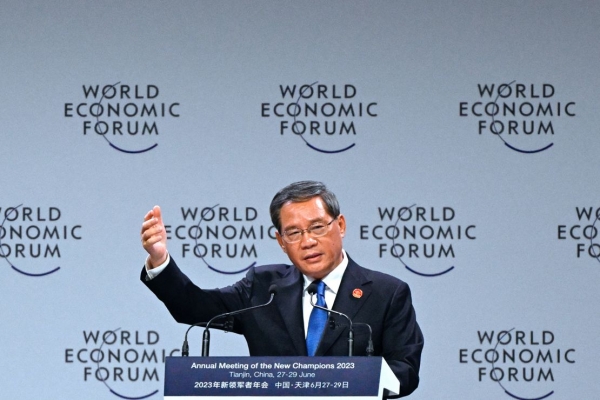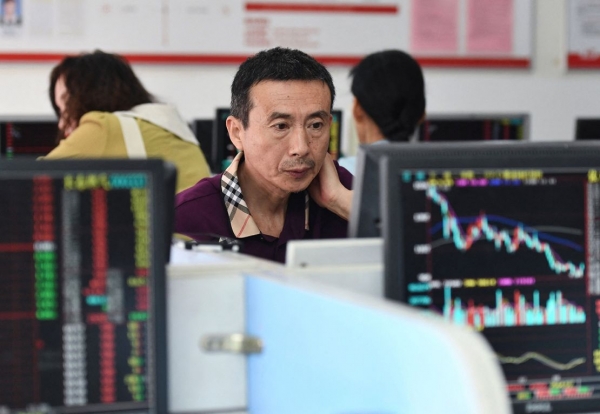Editor’s Note: Sign up for CNN’s Meanwhile in China newsletter, which explores what you need to know about the country’s rise and how it impacts the world.
China has vowed to pump more money into the economy and further open its $64 trillion financial industry to international investors, as Beijing scrambles to restore confidence following a massive stock market rout.
The promises from top officials come after a sell-off in Chinese stocks intensified this week. Hong Kong’s Hang Seng Index has fallen by 6.7% so far this year, while the Shanghai Composite and Shenzhen Component indexes are down 5% and 7.7% respectively.
Now, Beijing is trying hard to restore confidence. On Wednesday, Li Yunze, director of the recently-established National Administration of Financial Regulation (NAFR), said that China’s economic fundamentals are stable and promising in the long run, despite short-term challenges.
“The Chinese economy will surely move forward steadily while overcoming difficulties and continue to provide strong impetus for the global economy,” China’s top financial regulator said during a speech to global financial and business leaders in Hong Kong.
Hours later, Pan Gongsheng, the governor of the People’s Bank of China, said the reserve requirement ratio, which determines the amount of cash that banks must hold as reserves, will be cut on February 5. The reduction will provide one trillion yuan ($141 billion) in long-term liquidity to support economic growth, he added.
Analysts from Goldman Sachs said on Tuesday investors are concerned not only about China’s economic downturn, but also about its policy uncertainties, as its commitment to market-oriented reforms has been called into question.
Li on Wednesday tried to provide reassurance.
“As for the next step, we will study a number of financial opening-up measures and support more international institutions to operate and expand in China,” he said.
“In the future, the policy of China’s financial industry to make greater efforts to attract and utilize foreign investment will not change, the protection of the legitimate rights and interests of foreign investment will not change, the direction of providing a better business environment for foreign investment will not change, and the door of the financial industry will open wider and wider,” he added.
About $6 trillion, equivalent to roughly twice Britain’s annual economic output, has been wiped off the market value of Chinese and Hong Kong stocks since they peaked in February 2021. The astonishing losses, reminiscent of the last Chinese stock market crash of 2015-2016, highlight a crisis of confidence among investors concerned about the country’s future.

Buildings overlooking Victoria Harbour in Hong Kong pictured on October 15, 2022
Lam Yik/BloombergGetty Images
Li also pledged greater support for Hong Kong, whose status as an international financial center has been eroded in recent years by Beijing’s tightening grip over the former British colony.
Among the measures he proposed, the NAFR will expand the links between mainland Chinese and Hong Kong markets, so that more investors from each side can invest in the other’s stock and bond markets.
It will allow Hong Kong banks to expand their businesses in mainland China and reduce the barriers to investing in mainland insurers.
No ‘quick victory’
Policymakers in Beijing have made a number of efforts to boost sagging stock markets since late last year, and none so far have had a lasting impact.

Premier Li Qiang delivers a speech at the World Economic Forum Annual Meeting of the New Champions in Tianjin, China on June 27, 2023.
Wang Zhao/AFP/Getty Images
Premier Li Qiang, who chaired a cabinet meeting on Monday, vowed to take action to stabilize market confidence, according to a read-out published by Xinhua. He urged officials to step up “medium- and long-term fund injections” in the capital market.
On the same day, major state-owned banks moved to support the Chinese yuan, in order to prevent the currency from falling too fast as Chinese shares plunged, according to a Reuters report, citing unnamed sources.
The securities regulator has also privately asked some hedge fund managers to restrict short selling in its stock index futures markets, Reuters said.
On Wednesday, the state-owned Securities Daily reported that the country’s medium- to long-term investment funds, including the $406 billion National Social Security Fund and some state-owned insurance giants, are expected to buy shares to bolster the stock markets.
Last month, China Reform Holdings, a state-owned investment fund, announced it had bought tech-focused index funds to support the market.
In October, Central Huijin Investment, an arm of China’s sovereign wealth fund, said it had bought exchange-traded funds and would continue to increase its holdings in the future.
The brutal sell-off in Chinese stock markets has even forced some hedge fund managers to apologize for making wrong bets.

Investors monitor stock movements at a securities company in Fuyang, in China’s eastern Anhui province on August 28, 2023.
Stringer/AFP/Getty Images
Li Bei, the well-known founder of Shanghai Banxia Investment Management, said on Tuesday that her fund had registered a “maximum drawdown” from a peak last year, which means her investors could have lost as much as 25%.
“I have indeed made the mistake of assuming a quick victory [of the Chinese market] in the past few months,” she said in an apology letter on WeChat. “I have not been cautious enough and patient enough.”

